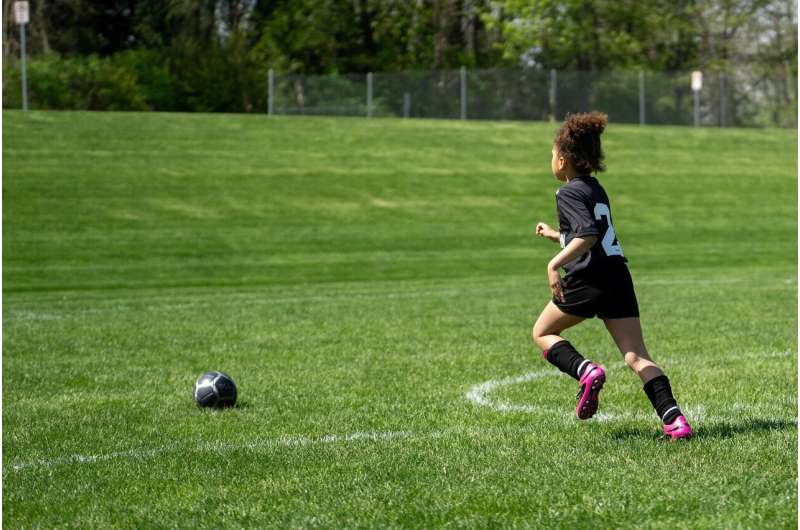This article has been reviewed according to Science X's editorial process and policies. Editors have highlighted the following attributes while ensuring the content's credibility:
fact-checked
trusted source
proofread
More sport-based mental health interventions needed for young males

Sports-based interventions show great promise in supporting positive change in mental health outcomes—but few mental health interventions have specifically targeted young males in sport settings, and Flinders University researchers say this needs to be increased.
A new study of a number of Australian sport-based interventions, including "Ahead of the Game," Read the Play, Talk Today and the recent SportSA Mental Health Charter supported by the Breakthrough Mental Health Research Foundation, found they were helping to address mental health literacy and awareness.
The article, "Promoting mental health among young males in sporting contexts: A systematic review," has been published in the journal Psychology of Sport and Exercise.
The scale of this situation is alarming. Globally, 89 million males aged 10 to 19 years are reported by UNICEF to experience a mental health condition, most commonly anxiety and depression. It is also notable that suicide mortality rates are markedly higher among young males.
Poor mental health is one of the most pervasive issues facing young people. In Australia, for example, ABS data (2022) found 39.6% of young people (16–24 years) are reported to experience a mental health condition, most often anxiety or affective disorders.
Study co-author Associate Professor Sam Elliott, a sport psychology and coaching researcher at Flinders University, says there are a number of barriers to overcome to build and maintain a culture of mental health support in youth clubs—including initial resistance, teething issues and turbulence.
While some community-level youth sport is embracing evidence-backed quality mental health and well-being programs, it needs to be further harnessed, with evidence more than 75% of young people in Australia (12–24 years) participate in organized sport.
"We hope, increasingly, that more youth clubs will adapt evidence-based mental health programs and support parents, club leaders and coaches and volunteers to be able to give sustainable, long-term support to players."
The latest review aimed to evaluate interventions targeted at the promotion of mental health among young males (10–24 years) in sporting contexts. From 15 studies included in this review, the findings indicate promising effects of sport-based interventions on the mental health and mental health literacy outcomes of young males.
More than 80% of the studies reported positive effects of sport-based interventions on mental health and well-being or mental health literacy outcomes.
The researchers say there is, however, scope to improve the capacity of sports-based interventions to affect positive change in the mental health of male youth.
"Our systematic review aimed to evaluate interventions targeted at the promotion of mental health and well-being among young males in organized sporting contexts," says lead researcher Dr. Jasmine Petersen, from Flinders University's College of Education, Psychology and Social Work.
"We believe sport settings provide an important site for mental health promotion," she says.
Interventions were largely implemented in community sporting clubs, and a higher proportion of these interventions were shown to have positive effects on mental health (and well-being) or mental health literacy outcomes (90%), compared to interventions conducted in professional sporting clubs (66.6 %) or university settings (50%).
"This is especially notable, given that community sporting clubs have widespread reach. About 75% of young Australian males participate in sport, largely within a sports club—so community sporting clubs could be key to curb the prevalence of mental health problems in young males," says research co-author Associate Professor Ivanka Prichard, from Flinders University's College of Nursing and Health Sciences.
The findings from this review also have important implications for the future development and evaluation of sports-based interventions targeted at young males.
Researchers noted that there is already rapid growth in this field of research, with 86% of the examined studies published from 2018.
"This reflects a growing recognition that sport settings are important sites for mental health promotion, and suggests that ongoing efforts to harness sport settings to support the mental health of young males is necessary."
More information: Jasmine M. Petersen et al, Promoting mental health among young males in sporting contexts: A systematic review, Psychology of Sport and Exercise (2023). DOI: 10.1016/j.psychsport.2023.102551



















